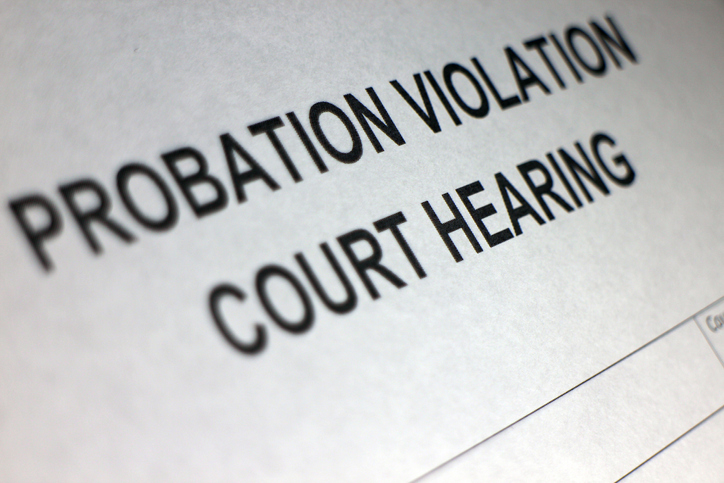Parole is a form of what’s considered “conditional freedom” for a prisoner. When the prisoner comes out from behind bars, he or she is required to adhere to a set of responsibilities and standards which, if not followed, will lead to the parolee returning back into custody.

The most common form of parole is called “mandatory parole” and comes after the defendant’s prison sentence. Under the traditional parole system, parole is considered a privilege for a reformed prisoner deemed capable of integrating back into society without being a threat.
Oftentimes, the prison authority will supervise the parole through mandated visits with a parole office. These visits are to ensure the released prisoner is integrating properly and living up to the agreed-upon standards/responsibilities set forth by the court (i.e., the parole officer makes sure the parolee stays out of trouble!)
Parole is also helpful as it prevents prisons from being overcrowded with offenders who are unlikely to cause harm to others in society but would benefit from having some additional supervised time before they are fully released.

Though each parolee’s conditions and responsibilities will vary, some common parole conditions are the parolee must:
The parole officer is often granted permission to make unannounced visits to the parolee’s home to check that he/she is abiding by the conditions set forth. Often times, if the offense is drug related, the parolee may have to succumb to random drug tests as well.

As per the Nevada Department of Public Safety Parole and Probation website1, parolees are given “the opportunity to practice good citizenship… those offenders who choose not to become good citizens [are] subject to arrest and revocation of their supervision… [and] will result in incarnation.”
Each offender is reassessed every six months to determine if the level of supervision is appropriate or if it can be decreased (or needs to be increased.) There are multiple units within the division that supervise various offenders: sex offenders, house arrest offenders, gang members, mandatory release parolees, drug court and mental health court and interstate compact offenders.
It is both the philosophy and practice of the division that “each offender is responsible for his or her behavior and for the choices they make each day.”
Specific crimes require the parolee to register with the State. As per the Nevada Department of Public Safety2, those crimes are the following:
Nevada Law requires all individuals that have been convicted of a sex offense after July 1, 1956, to register as a sex offender with the local law enforcement agency in which the offender resides. Per NRS 179D.4103, the following crimes (including an attempt or conspiracy to commit such crimes) are sex offenses that require registration:

There are specific rules and guidelines for registering, which can be found at the website mentioned above or by discussing the specifics of the case with a qualified attorney. For clarity, it is always best to consult with an experienced parolee attorney rather than collect general information from a website.

Parole violations in Nevada are conducted by a department called the State Board of Parole Commissioners. This board will determine whether the parolee has violated the terms of their release. If they have, they may be ordered to return to prison to serve the remainder of their sentence or ordered to stay at home under extreme supervision.
Parole violation hearings allow defendants to testify on their own behalf or to be represented by an attorney. However, unlike jury trials, parole violation hearings are not required to find beyond a reasonable doubt that the defendant violated his/her parole. Instead, there must only be substantial evidence.
Parole and probation are two different things. As mentioned at the start of this article, parole is when an inmate is released early from prison, under certain conditions, in an attempt to peacefully and responsibly re-integrate into society. In contrast, defendants on probation may be able to avoid going to jail/prison at all.
If someone is convicted of a crime, they may have the opportunity to go on probation and have their jail/prison sentence suspended entirely.
Some common conditions of probation may include:

Sometimes it’s possible to receive early termination of probation. Speak with a qualified attorney regarding the specifics of the defendant’s case to determine if this is possible under the circumstances.
Assuming the defendant follows the terms of probation, he or she can remain out of custody. However, if the defendant violates any of the agreed-upon terms, the judge can sentence him or her to serve out the suspended jail/prison sentence.
If a probation sentence is violated, the defendant will go to court for a hearing. Much like a parole violation hearing, there is a much lower burden of proof. If you’re unable to fulfill your terms of probation, speak to an experienced probation attorney to understand your rights and explore options that will help you adhere to your probation terms.
Probation revocation hearings are held to determine whether or not a parolee violated the terms of probation. In these hearings, prosecutors only need to prove a preponderance of evidence rather than beyond a reasonable doubt that probation was violated. There is no jury present, so the judge will rule by reinstating your probation, modifying your probation or completely revoking probation.
In order to protect your rights and keep favorable probation terms, consider working with a probation attorney who has experience and knowledge of these hearings.
1Nevada Department of Public Safety. Parole and Probation. Retrieved 6 April 2021 from http://npp.dps.nv.gov/
2Nevada Department of Public Safety. Crime Requiring Sex Offender Registration. Retrieved 6 April 2021 from http://npp.dps.nv.gov/Home/Offender_Supervision/Crimes_Requiring_Registration/
14NRS 200.710 to NRS 200.730
16NRS 175.547 or NRS 207.193